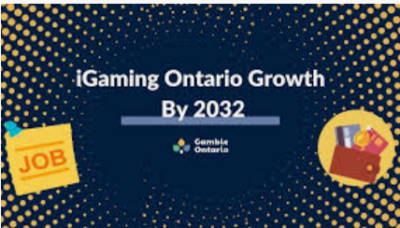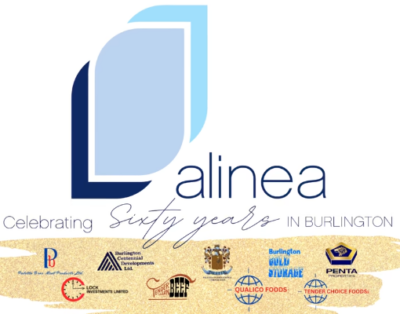November 25, 2024
BURLINGTON, ON
Since iGaming Ontario took up the reins and the challenges of the new online gambling scene in Ontario, there has been a prominent spike in the sector’s popularity. In the first couple of years of operation, online gambling has seen plenty of positive growth in the province, but that of course is just one small drop in terms of what the country produces.
Unlike places such as the UK and Ireland, the Great White North as a whole is not governed by the same gambling framework. That’s because things are left to the provinces as to how they handle things, and therefore there are great variations between one and the next.
 Things for example are tighter in Quebec, whereas the modern online gambling scene in Ontario has delivered a fresh, well-regulated and yet open platform for those interested. Legalized gambling can be an important part of a province’s economy, and proof of that comes from financial reports posted by iGaming Ontario, which may make other provinces sit up and take notice. The demand is there, can it be tapped into?
Things for example are tighter in Quebec, whereas the modern online gambling scene in Ontario has delivered a fresh, well-regulated and yet open platform for those interested. Legalized gambling can be an important part of a province’s economy, and proof of that comes from financial reports posted by iGaming Ontario, which may make other provinces sit up and take notice. The demand is there, can it be tapped into?
What’s Going on in Ontario?
Starting in April 2022, iGaming Ontario (different from the Ontario Lottery and Gaming Corporation) delivered a new, secure and regulated online gambling system to the province. Working in conjunction with the Government of Ontario, the overseeing body is the one that hands out and maintains licensing for any online operators.
That was a big step towards a safer gaming experience for Ontarians, because picking from the list of regulated providers from iGaming Ontario, gives players peace of mind over things like the security of payments and fair gaming. That is a massive boost for igaming and as reported in the article Ontario iGaming Expected to Triple by 2032, Written by Anthony Odiase, Published by gambleontario.ca1, popularity is soaring.
With players having already previously found offshore sources at which to do their online gambling, Ontario took the fresh approach of standardising the market for willing providers in the province. That was designed to bring some advantages to the economy as well, and numbers from the first two years of iGaming Ontario show the value of their approach.
Growth In Ontario
The total gaming revenue from online gambling in Ontario in 2023 was $1.4 billion. That number had jumped significantly to $2.4 billion in the second year since iGaming Ontario started running the show2. The growth has been outstanding not only for the operators in the sector but for locals as well.
 There are now a reported 12,000 full-time equivalent jobs running in Ontario because of the online gambling scene, a number which is expected to add another 10,000 by 20323. So big things are still expected from this market, which contributed $1.6 billion to Ontario’s GDP during its first year of operation, and that’s a number expected to surpass $2 billion in revenue by 2032.
There are now a reported 12,000 full-time equivalent jobs running in Ontario because of the online gambling scene, a number which is expected to add another 10,000 by 20323. So big things are still expected from this market, which contributed $1.6 billion to Ontario’s GDP during its first year of operation, and that’s a number expected to surpass $2 billion in revenue by 2032.
The overall projection is that the potential annual GDP contribution from online gambling is going to almost triple by 2032. Current figures report that more than $900 million has gone to employee compensation in Ontario’s iGaming sector with the average salary running at $103,000.
There have been clear signs that there is a big demand for online gambling and the numbers across the country are supporting that.
Year-on-Year Growth
It’s reported that there are over 19 million active online gamblers in Canada4 and across the country, the federal revenue garnered from it is around $3.1 billion. So there is a lot that is going back into the economy and the advances in Ontario in the last couple of years have certainly added to it, considering that it contributed $1.4 in revenue in 2023.
The average online gambler in Canada spends around $7 per month. But again, dialing in the focus to the progressive setup in Ontario, there have been noticeable increases in how much players gamble on average. In 2022 it was around $70 per month and that had jumped to $200 per month in 2023, significantly higher than the national average.
 This isn’t a surprise since Ontario has a more open, regulated industry, which means that access to provincially-backed sites is easy. Accessibility is a big factor in more money being gambled per person. Other people in the country may have to take risks at offshore platforms to do their gambling and are less likely to risk greater funds going to places like that.
This isn’t a surprise since Ontario has a more open, regulated industry, which means that access to provincially-backed sites is easy. Accessibility is a big factor in more money being gambled per person. Other people in the country may have to take risks at offshore platforms to do their gambling and are less likely to risk greater funds going to places like that.
The increase in betting averages comes with concerns that there will be a rise in problem gambling, due to the players more easily accessing platforms. As part of the ongoing campaigning for the safety of players, iGaming Ontario for example has a strong approach to responsible gambling, by providing knowledge and tools to make things safer for players. That includes a coordinated and centralized self-exclusion problem from all gambling websites operating in Ontario.
Demand And Supply or Supply And Demand?
Ontario has more than 50 licensed operators providing gambling platforms in the province. That number will likely grow as the industry is still fairly new and existing operators are likely to face competition not only between themselves but from newly licensed ones down the line.
The demand for legalized gambling in Ontario appears to be there because if it wasn’t popular then the growth would not have been as strong. Or has it been a case of “build it and they will come” within the province? Has the user-friendly, legalized gambling market thrown the doors wide to give people access to something that they may well have left alone had it never been there?
There’s no way to answer that speculation of course, but in 2022, after iGaming Ontario launched the new system, around 30% of people gambling in Ontario reported back in a survey by Ipsos5, as being registered to an online gambling site as the new market fired up.
But to think that gambling wasn’t in demand before iGaming Ontario regulated it, is folly. In 2022, it was reported that around 70% of all online gambling from Canada was done on offshore platforms. A large volume of people were already finding ways to gamble before things were regulated.
Why The Discrepancy?
Why, in the new age of being able to play at fully regulated sites, would players still take chances at offshore unregulated ones? The main answer to that will come down to knowledge, not even knowing that there is now a list of regulated online gambling sites provided by iGaming Canada which are safe to use.

Ontario Lottery & Gaming – OLG.ca, which is the official Ontario Lottery website is tightly regulated and hugely popular, was even regulated
To further press that home, another Ipsos report found that more than 70% of respondents were completely unaware that OLG.ca, which is the official Ontario Lottery website, was even regulated and were under the assumption that other major online gambling providers were also unregulated.
But biases also play into this, because players who have used or are still using an unregulated platform are likely unaware that it is not regulated, and even if they did know, they would be more prone to believing that it was a regulated one.
So perhaps the message from iGaming Ontario has not been quite as far-reaching as it could be and has some work to do. Still, from a previous 70% of Ontario gamblers using offshore platforms to around 85% now using province-regulated ones, that is a sizable shift and a positive for player safety.
The Rest Of Canada
Ontario gets a lot of attention thanks to its positive approach to getting its online gambling sector regulated within its border and remains the only province that is fully regulated for private operators. Because of that open and competitive market, it is why the province stands alone because of the pioneering approach to things. But what is going on within the rest of the provinces?
Legal and Regulated
British Columbia, Alberta, Saskatchewan, Manitoba, Quebec and New Brunswick offer legal and regulated online gambling. That is all done, however, through government-run platforms that provide a range of options including sports betting, casino games and lottery. BC, Manitoba and Saskatchewan are all linked together on BC’s prominent, government-run PlayNow.com platform.
Legal and Limited
Nova Scotia, Prince Edward Island and Newfoundland and Labrador have far more limited options in terms of what online gambling is accessible, with most of them limiting sports betting. What is available in each of the territories is provided by the respective provincial government. Things are also fairly limited In the Territories where options are mostly for lottery products only.
What About Offshore?
Access to offshore gambling sites is still available across the country. It happens, and understandably so, when people’s options for legal and regulated gambling within their home province are limited. However, the danger with unregulated platforms is that they come with some extremely grey areas over things like providing any kind of customer protection and responsible gambling.
In Conclusion
With figures from online gambling expected to triple in Ontario alone within the next eight years, online gambling is going to continue to rise in popularity across the country. There may well be envious eyes being cast over to Ontario where things have shaped up nicely, and the industry there has grown competitively and strongly in the last couple of years.
 Ontario’s stance has been much lauded for offering approved platforms to play at because if gamblers are going to gamble, it’s better for it to be done somewhere that’s safe and regulated without being locked into just one government-controlled platform. It is also a proven model for providing jobs and a boost to overall GDP.
Ontario’s stance has been much lauded for offering approved platforms to play at because if gamblers are going to gamble, it’s better for it to be done somewhere that’s safe and regulated without being locked into just one government-controlled platform. It is also a proven model for providing jobs and a boost to overall GDP.
- Ontario iGaming Expected to Triple by 2032, Written by Anthony Odiase, Published by gambleontario.ca
- iGaming Ontario’s FY 2023-24 Full Year Market Performance Report, Written by iGaming Ontario, Published by igamingontario.ca
- Deloitte: Economic Contribution of Ontario’s Regulated iGaming Market, written by iGaming Ontario, Published by igamingontario.ca
- Gambling Statistics in Canada, Written by Olivia Bush, Published by madeinca.ca
- Thirty Percent of Canadians Report Being Registered on an Online Gambling Website, Written by Ipsos, Published by ipsos.com


















